|
Richard Bache is our BBKA Delegate and reports from the recent BBKA ADM.
On the 12th January I attended Myton School in Warwick for the 59th BBKA ADM. A minute silence was held for the beekeepers that had passed away. There were the usual housekeeping, apologies and adoption of the standing orders. Margaret Murdin (President and Chairing the meeting) reported that there had been increasing abuse over the telephone by beekeepers towards the staff at BBKA headquarters necessitating the introduction of telephone recording. 66 (of 74) Area Associations were present, representing 23284 members. Minutes and Reports An amendment from Manchester regarding the minutes of the 2018 ADM had been accepted by the executive. Bob Maurer (Surrey) asked why there was so little recorded about the disciplinary process at last years ADM. Margaret Murdin explained that it was best to leave it out as a lot of what was said was contentious and confidential. The minutes were accepted. Terry Hitchman (Stratford delegate) asked what progress had been made on the discouragement of honeybee importation. Margaret Murdin stated that lobbying had occurred and that banning importation of honeybees might be possible after Brexit, but there were other political priorities for the government. It was noted that it was mainly bee farmers who were importing honeybees. Tony Lindsell (Devon) recorded his disappointment with progress reports and the fact that it did not seem that ADM propositions moved freely to the EC to action. He also noted missed opportunities regarding a DEFRA consultation, although Anne Rowberry noted that she had responded in several capacities, including as BBKA trustee. Later, Tony Lindsell asked for a copy of the BBKA response to the DEFRA consultation. John Canning (Cleveland) asked about the Northern Ireland situation post Brexit. Margaret Murdin noted that there were already difficulties in recording bees crossing the Northern Ireland border. The Northern Ireland (INIB) delegate stated that figures for bees crossing the border were not clear, there are bees and beekeepers that straddle the border and there are likely to be low numbers but also under-reporting. Tony Lindsell briefly asked for an update on the VAT proposition of several years previously, although it was noted that this might be difficult to achieve before Brexit. Roger Patterson noted that importation of honeybees was permitted from Argentina and that the have Africanised honeybees. The reports were dealt with much quicker than in previous years as there were no verbal supplementary reports except on the Spring convention, where a paragraph had been omitted. It was explained that there was much subsidy of the convention by the traders and that they were trialling cheaper day tickets. Michel Badger (Yorkshire) asked whether there was a plan to stay with Harper Adams long-term. Joyce Nisbet replied stating that the venue was frequently under review, and although there were some disadvantages to the venue there were also many advantages and there are no plans to change the venue at present. Simon Cavill explained that the next International Meeting of Young Beekeepers will be in Slovakia and that it was hoped to get beekeepers aged 12-16 involved for selection. The reports were nearly unanimously accepted. Val Francis (for the exam board) noted that there had been more basic assessments and awarded the Surrey shield (Basic Assessments) to Newcastle and the George Knights Memorial Shield (higher assessments) to Gloucester. It was noted that there had been a third consecutive year of surplus and no increase in capitation was intended. The reappointment of auditors and financial reports were both passed with near unanimous support. New Association applications After lunch, attention turned to the associations applying for BBKA membership. The Laddingford representative gave a fairly bitter account of their split with Kent BKA which seems to have centred around the insistence that all Kent members subscribe to Bee Craft. They were initially formed from the Yalding Branch and it sounds like there was deeper bitterness around the finances of the division. The Kent delegate offered no objections to them joining BBKA, but noted that some issues with their formation had been raised with the Charity Commission. The Medway representative also had no objections and supported the application. Bob Maurer (Surrey) made the point that once again, inability to sort out local issues had resulted in potential for increased administration at a national level. Michael Badger (Yorkshire) stated that they should pay an appropriate rate. As a delegate, the test I always apply is whether a new association represents fragmentation of existing associations or inclusion of previously unrepresented beekeepers. I felt this leaned towards fragmentation and therefore did not support the application. 34 Associations supported their application against 20 against, but this was overturned with a membership vote (7520 for, 10953 against). Terry Hitchman (Stratford) reiterated a previous request that local problems could be sorted out by a national taskforce. David Coates (Burton and district, Derbyshire) stated that large associations wield too much power with the membership vote. The other applicant association, Ellan Vannin, had withdrawn their application. Roger Patterson expressed annoyance that work had been undermined. Points were raised about the BBKA neutrality in membership applications before Michael Badger (Yorkshire) proposed we move to next business. Nominations The executive nominees, John Canning, Margaret Wilson and Diane Drinkwater were duly elected as there were more candidates than vacancies. The Exam board were elected as Somerset wished with Stuart Roberts, Marin Anastasov and our own Lynne Ingram getting the three-year terms, Celia Perry getting the two-year term and Michael Cullen getting the one-year term. Propositions After Lunch there was a rearrangement of the agenda to enable some work on the constitution. Margaret Murdin explained that the VAT issue (from Devon) was best brought up after Brexit, and presented the past presidents badge to John Hendrie. There was a series of quick-fire non-contentious propositions which were heavily supported (including by me): Enabling videoconferencing (8), Winding up BBKA Enterprises (7) and changing the BBKA news wrapper to a recyclable material (5). The proposition for protected time for propositions at the ADM (9) was felt to be too restrictive. Suggestions that were raised to enable more discussion included an informal forum, a digital forum or even a second day of voting. I was among 39 that voted against this one. The first proposition to generate much debate was the inclusion of a schools category, should the new constitution not pass. It was clarified that one school would constitute one voting member and that the school would rely on their own insurance. It was agreed that the educational establishment would have to be defined more precisely with Ofsted registration (or Estyn in Wales). Annette Campbell (Newcastle) was concerned that all the students at the local university could converge on the club apiary, but Margaret Murdin stated that it was up to local associations to define the relationship they have with Educational establishments. Lesley Jacques (Cheshire) suggested that universities should be excluded as they were comprised of adults that could join independently. There was suggestion that the fact the wording was not published in time would make the proposition out of order, others suggested that it ought to go to the executive to work on it in more detail. However, two amendments were tabled- one to necessitate OFSTED/ESTYN registration for a school being a members (which I supported and passed) and one which included Universities (which I supported and did not pass). The proposition was passed (which I supported) with 56 votes (84%) for and 8 against. It was noted that it is up to associations to amend County membership classes accordingly. The proposition on whether BBKA should be represented at tradex (6) divided opinion with many seeing an opportunity to engage with more beekeepers. It was noteworthy that those involved in the BBKA spring convention and those who were executive members when Bee Tradex was formed were very much against this, citing the inflexibility of the proposition. It was supported. The next proposition on publishing BBKA minutes divided opinion. Tony Lindsell (Devon) stated that this was a matter of transparency while Margaret Murdin felt that draft minutes could not be published and John Canning stated that it can suppress ideas at the meeting with decisions taken away from formal committee process. He instead pressed for a good report of the meeting. Margaret Wilson highlighted the positive thinking newsletter. It was suggested that the whole proposition be re-written. Padraig Floyd (Essex) proposed that the word Draft be omitted and I seconded this as this was the steer that I had from Somerset and this was well supported. John Canning then immediately proposed an amendment that this should be a summary of the meeting, which I felt watered down the proposition but was nonetheless passed and the amended proposition passed. The proposition to discourage manufacturers from selling leather gloves to beginners (11) was next, with the Derbyshire delegate stating that the best use for leather gloves is smoker fuel! Mike Duffin explained that he gets bad reactions and wears disposable gloves over the leather gloves. Anne Rowberry added that the suppliers had their reasons, but all agreed to suggest nitrile gloves. I was one of 44 who voted for this proposition. The next proposition to be discussed was the discipline and dispute resolution policy (1). Stephen Barnes, for the executive, acknowledged that there were some weaknesses that had been identified. The broad change was that the right of appeal moved from being at the BBKA ADM to being independent arbiters. This, of course, would avoid the farcical events of last year where the EC were left potentially legally liable for the outcome of a dispute but had no input into the decisive vote. Padraig Floyd (Essex) supported the broad policy direction and vowed to work with the trustees to bring amendments to the next ADM. There were concerns that on one hand the BBKA needed a policy, but on the other, it needed to be well thought-out. The policy was accepted and collaboration with the review was invited. BBKA Constitution The major proposition was dealt with last: that of the new constitution (now that BBKA are becoming a charitable incorporated organisation). Stephen Barnes discussed the background to the document and the progress that had been made over the past year. He stated that there had been little feedback, but that it had been of high quality, and sometimes quite novel. There had been a number of amendments, many of which had been received in the previous 24 hours, ranging from minor to substantial. It was even considered whether to pull the document, but that they had identified 7 amendments for consideration:
The amended constitution was put to the vote and I supported it along with 58 other associations. The Manchester delegate expressed his thanks for all the effort that had been put into the document to widespread applause. Margaret Murdin thanked the delegates for their time and goodwill, and also the staff of BBKA. As 2019 begins, our minds turn to the forthcoming beekeeping season, writes SBKA Asian Hornet Action Team Co-ordinator Lynne Ingram MB in the January issue of the newsletter.
At the moment we may be giving fondant to our bees, doing mid winter varroa treatments or perhaps planning our beekeeping goals for the year ahead. But, whatever else you are doing, you do need to be thinking about Asian Hornets. Last year there were four nests found and destroyed in the UK, and nine confirmed sightings. As the numbers build up in Europe, and Northern France, the threat of Asian Hornets invading the UK increases, and we all need to be very vigilant in order to prevent/slow a major invasion. Asian hornets (Vespa velutina nigrithroax) are voracious predators of pollinators, and in particular honeybees, whose colonies contain a vast number of insects in one place – a veritable insect supermarket for the Asian Hornet! So what are Asian Hornets doing this time of year? Mated queens are now overwintering in cracks, crevices and sometimes underground. They can hibernate singly or in small groups. We don’t know as yet, if there are any hibernating in the UK. Like bees they feed well in the Autumn, in order to build up their fat bodies to sustain them during the long winter. Like other members of the wasp family, they overwinter with their wings, legs and antennae protectively tucked in underneath them. The rest of the colony would have died out in December. As the days lengthen in March or April (depending on the weather), the queens start to come out of hibernation, and firstly search for nectar rich flowers, in order to build up their energy. In France and Jersey they are often seen on early Camellia flowers, so if you have any, it may be worth keeping an eye out for Asian Hornet queens. Queens search for a nest site, then start creating golf ball sized embryo nests, which are generally in sheltered spots such as sheds or garages. To start with the queen will be laying the eggs, foraging for food and feeding the larvae. She may curl herself around the pedicel of the nest to keep the larvae warm. Once the first workers emerge, they will take over many of these tasks, leaving the queen to lay eggs. If you see a nest, check for Asian hornet activity, then photograph it before reporting it. This is the time of year when a monitoring trap can be invaluable, attracting the queens to a sugar rich bait. It is important though that beneficial insects, such as European hornets and wasp queens, can be released from these traps in order to protect our native pollinators. You can make a trap from a water bottle as illustrated below (instructions on Beebase) www.nationalbeeunit.com/downloadDocument.cfm?id=1056 or buy a commercially available trap, and instead of filling the bottom with liquid bait in which insects would drown, scrunch up some kitchen towel so that insects can suck the bait from the paper without drowning. Or place a yogurt pot full of bait inside the trap, with a mesh or net covering to prevent drowning. Don’t forget to inspect your traps regularly, and release anything else that has been captured. If you find an Asian Hornet If you do find an Asian hornet in your trap, the key is to get evidence so that you can report it. You could take a photo through the trap wall, or put the trap in a bag in the freezer, and then photograph the hornet once it is dead. Email your photo with details to: [email protected] or use the Asian Hornet Watch app. Somerset Asian Hornet Action team If you think you may have seen an Asian Hornet and are struggling to get evidence, or need some advice then contact the Somerset Action team on: [email protected] and someone will come and help with identification and getting evidence. We've been contacted by the BBKA and asked to share a document written by Anne Rowberry, a BBKA Trustee and member of SBKA, regarding 'The Role of Associations and Beekeepers concerning Asian Hornets'. She has attended meetings and had discussions with Nigel Semmence, Contingency Planning & Science Officer, Bee health advice service at the National Bee Unit. This document is the summary of the protocol that has been agreed. The BBKA will post further information as it becomes available://www.bbka.org.uk/asian-hornet-action-teams The BBKA is in the process of creating a map on its website, similar to the swarm map, to help the public find their local AHAT contacts. Nigel Semmence's overview of how Defra and other organisations are operating in relation to Asian hornets is also published on the BBKA website.
Luke McEvoy-Hughes is a student studying Environmental Sciences at the University of Brighton and would like our help!
He writes: "As part of my final year I am carrying out an independent research project into beekeeping, aiming to explore the different issues encountered by beekeepers as well as the strategies and methods employed by beekeepers to ensure the health and prosperity of their colonies." Anyone willing to answer a short survey should follow the link below: goo.gl/forms/5HLDG3uI5ezJDRpv1 The start of the New Year is an excellent time to look ahead to the coming season and plan what you'd like to achieve with your bees. Whether that's trying a new type of hive, creating more colonies or breeding your own queens (and this is the year to mark them green), then give it a go!
SBKA is focusing on helping all members recognise EFB through leaflets, new digital content and 'Read the Comb Day' on June 15. Also, we want to alert everyone in Somerset (and beyond) to be on high alert for Asian hornets. We'll be running a publicity campaign via the press and our own social channels as well as working with organic, national dairy Yeo Valley to spread the message far and wide. If you have connections with local gardening groups, garden centres, wildlife groups and trusts etc, please spread the word. [You can request laminated Asian hornet posters from the Non Native Species Secretariat (NNSS) to give to these groups]. Our Asian Hornet Action Team is getting prepared ahead of the Spring and we're printing new leaflets and ID cards for members ready for what we expect will be more sightings this year. Here's hoping that 2019 brings us strong and healthy colonies supported by local people who, just like us, want to see honeybees and all pollinators flourish. |
Archives
March 2024
Categories
All
|
||||||
Somerset Beekeepers Association Charity © 2021 Registered CIO Charity 1206483
Affiliated to the British Beekeepers Association
Click here to view our Privacy Policy
Affiliated to the British Beekeepers Association
Click here to view our Privacy Policy
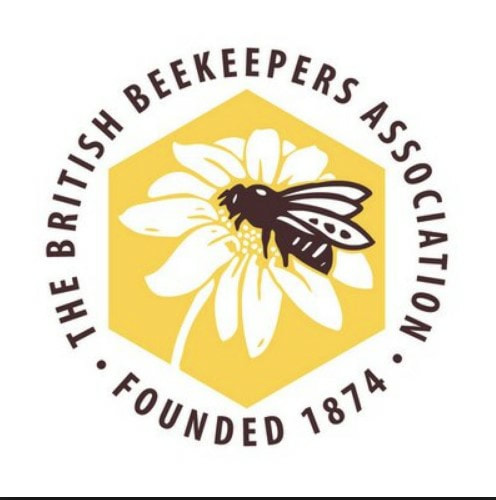
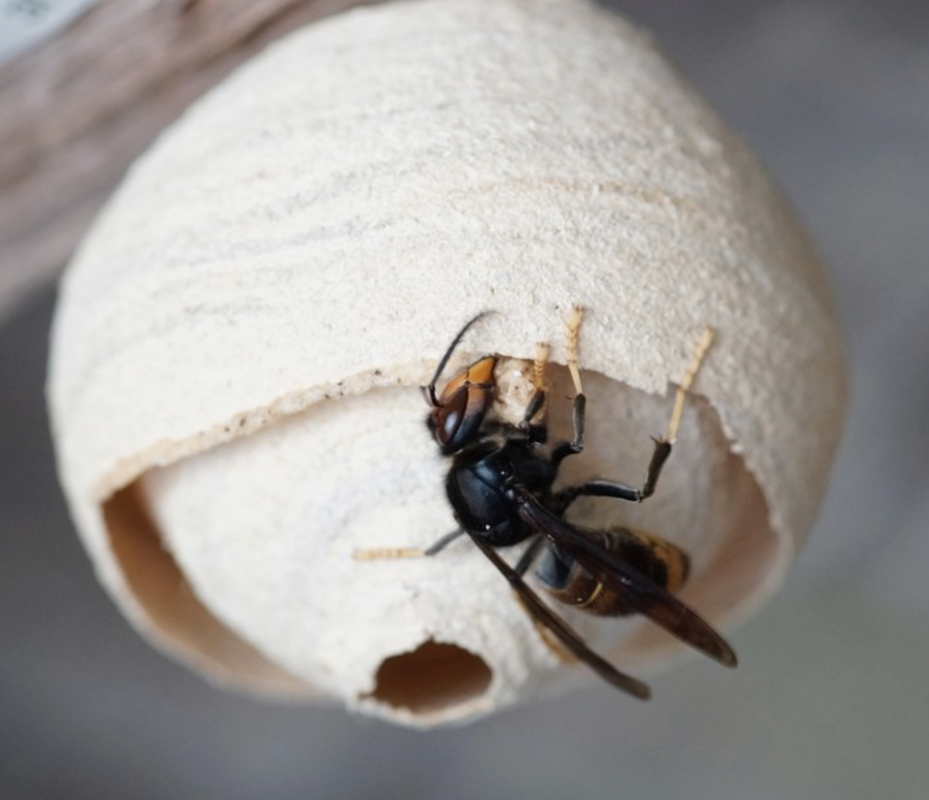
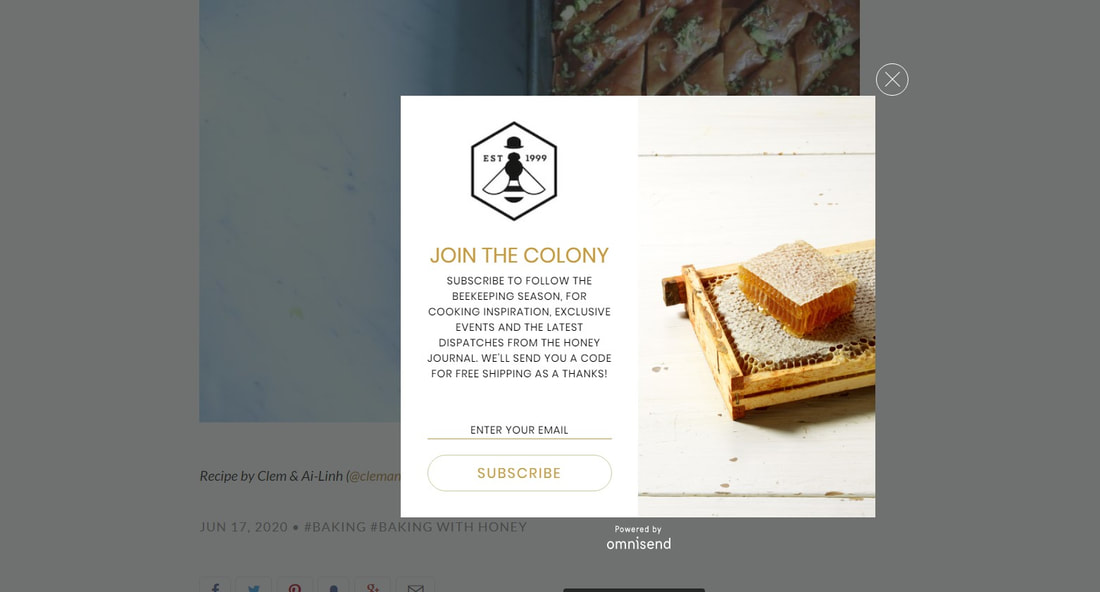
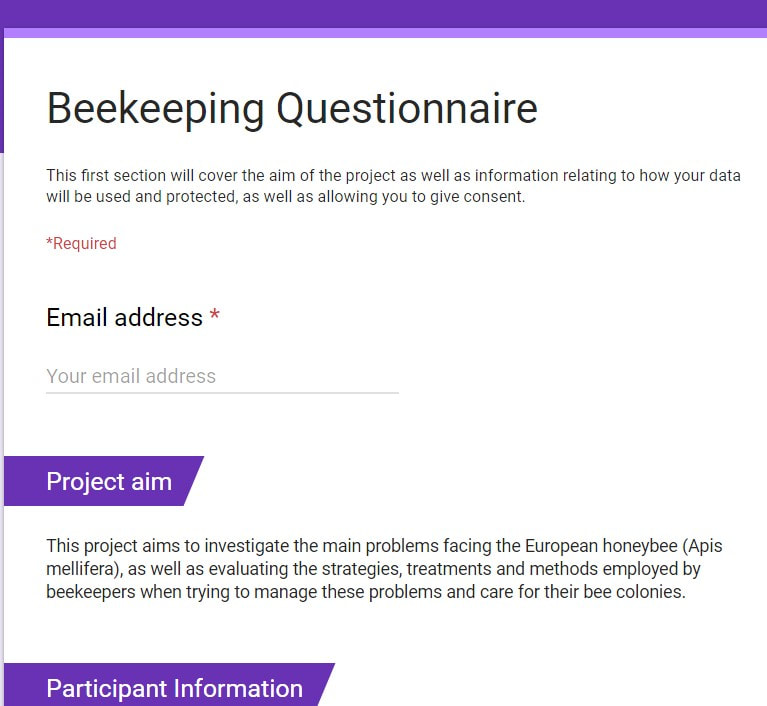
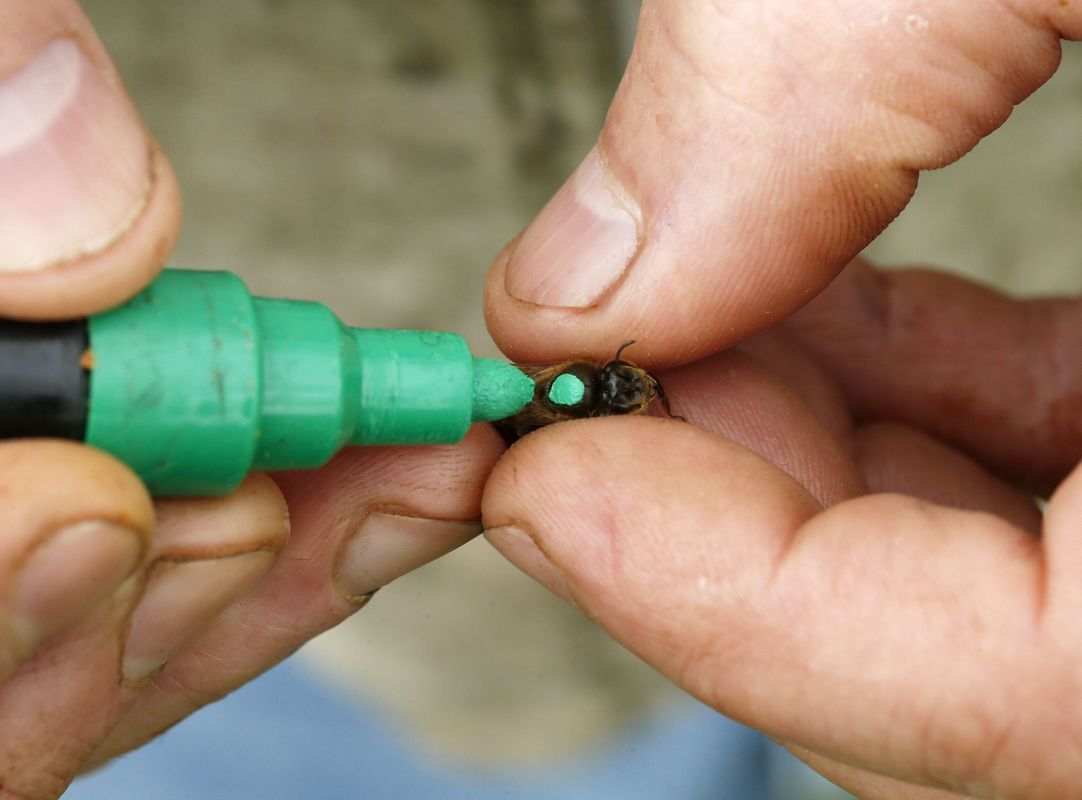
 RSS Feed
RSS Feed
